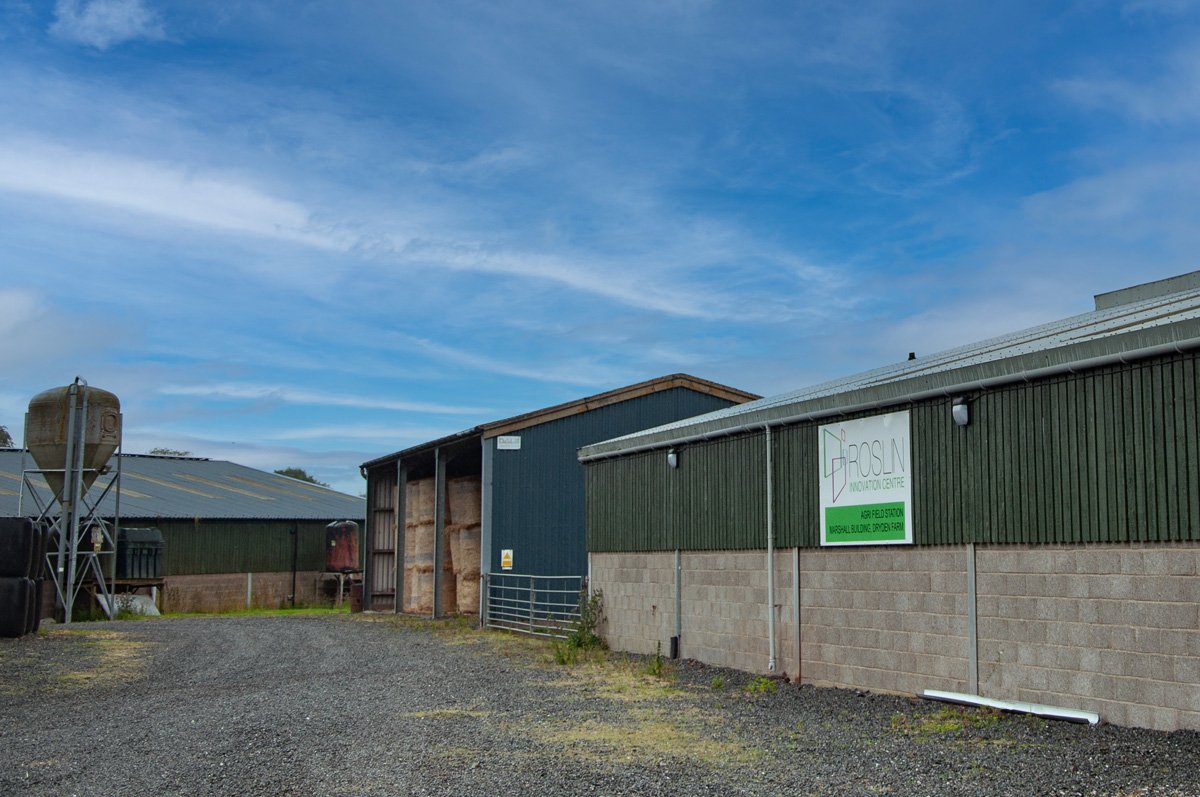New Agri research space for Roslin Innovation Centre
With a consistent demand for agriculture research space at Roslin Innovation Centre (RIC), and with a steady growth of existing tenant companies ‘in residence’, the RIC team explored options for additional space. Following a review of existing facilities within the University’s estate, the RIC operations team identified a potential solution close to Campus to accommodate this demand for growth, driving forward agriculture research and supporting Roslin’s world-leading animal health status.
Located within a local site, a vacant farm building was identified as one that could be suitably repurposed.
Roslin Innovation Centrę Agri Field Station
With the opening of the RIC Agri Field Station (previously The Marshall Building) in early 2024, this now provides RIC with an increased offering.
The Agri Field Station provides a myriad of different rooms, including climate control rooms, offices, and labs areas, as well as connected access to extensive barn space, adjacent to a farm. It is available to existing RIC tenant companies and has been added to the RIC portfolio of managed space and is now attracting interest from external companies with an Agritech sector.
In January we welcomed a team from Oxitec, head-quartered in Oxford. As a result of collaboration with the Roslin Institute, the company has relocated a team to work on a specific project at the Easter Bush Campus and the RIC Agri Field Station has provided the ideal location to progress this collaboration.
Oxitec Ltd is building a healthy, sustainable and equitable future for humans on this planet by forging a new category of safe, sustainable, highly effective biological pest control solutions. The company is the leading developer of biological solutions to control pests that transmit disease, destroy crops and harm livestock. The Friendly™ platform is being applied to combat the growing threat posed by disease-transmitting mosquitoes and agricultural pests that threaten food security and livelihoods. The work conducted in partnership with the Roslin Institute, focuses specifically on the world’s most devastating invasive cattle tick.
In February, Seawarm, a pre-spin out from the University of Edinburgh’s School of Geosciences, was the next to take up residence. The project, to develop heat exchange technology for marine environments, secured £75,000 from Scottish Enterprise’s High Growth Spin-out Programme (HGSP) to support renewable energy. Facilities within the Agri Field Station will allow Seawarm to continue to develop technology to harness thermal energy from the sea that will provide sustainable heating for coastal communities and businesses.
The vision for the RIC Agri Field Station is to enable RIC companies & entrepreneurs to conduct research and studies that will lead to fundamental discoveries to address global challenges in Animal Bioscience, Agritech and Aquaculture and One Health.
For further information, or to enquire about availability at the RIC Agri Field station space, please contact:
Val Hughes-White
RIC & Agritech Innovation Director
Roslin Innovation Centre
Email
T: 0131 651 9000 (Reception)


